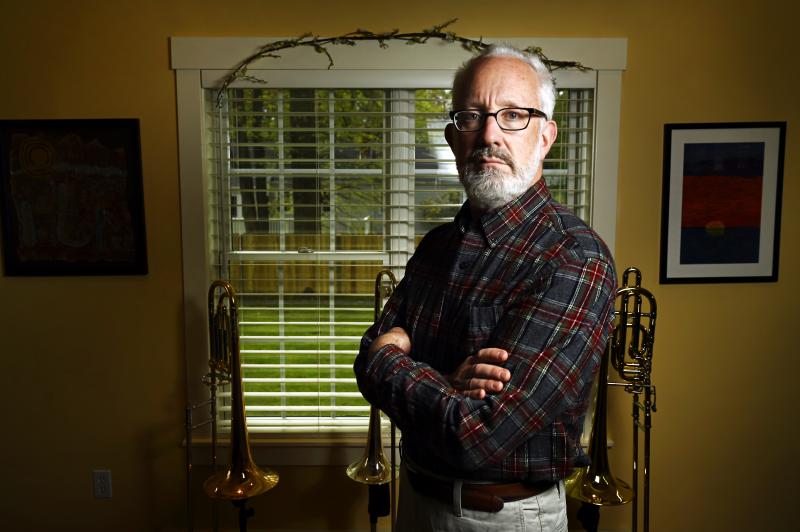Fearing For Their Pensions, Union Workers See Hope In Federal Aid

Bill Whitaker’s work as a professional bass trombonist stopped with the pandemic, and so did his pension contribution. (Joe Amon/Connecticut Public)
Before the coronavirus pandemic shut down Broadway, Bill Whitaker drove every week from his home in Connecticut to New York City, where he performed in “Phantom of the Opera” as a bass trombonist. This was Whitaker’s main gig for 19 years, but he had many others.
Throughout those years, he was a union member, and while he never expected a lavish retirement, he figured he would get something from his musicians pension. But when the pandemic hit and the music stopped, so did pension contributions from his multiple employers. He worried about an uncertain future.
“Obviously, you work for a very long time and you’d like to be thinking that when you put money away, when you do retire, that you’ve worked long and hard and that you have money that you can retire on,” Whitaker said. “There have been contributions made on my behalf in the pension fund since 1987.”
While the pandemic has brought a lot of economic doubt, there is hope now. Tucked into the $1.9 trillion federal American Rescue Plan is special financial assistance to save more than 200 failing pension plans like Whitaker’s.
This will impact millions of workers, including roofers, truck drivers, machinists and musicians — many of whom would have faced huge losses to their retirement benefits but are now breathing a collective sigh of relief.
Read the rest of the story at Connecticut Public Radio’s website.
